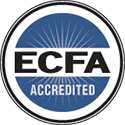It’s Time to Have ‘The Talk’

By Ann Thompson, Vice President for Member Services
I recently received a phone call from a childhood friend asking for advice concerning her mother. I have received calls such as this for many years—in part because I have worked in the field of aging services for 40-plus years. While I do not have all the answers, I welcome the chance to help because these are common experiences we share as our loved ones age, and as we ourselves grow older.
When I was an expectant mother, I read all the books I could find on caring for a baby, raising a toddler, and on through teenage years. But have we prepared ourselves as well to be the adult children of aging parents? Today, there is much reliable information available online as well as organizations that specialize in serving families of older persons with which families should become familiar.
With the recent arrival of my own Medicare card I asked myself, “How am I preparing for my own aging?” I have had some conversations with my children about my wishes and personal information. As time progresses, there will be new items to add to the discussion. One of my sons asked me to make a list of things I would want them to keep and to write a short description of each item and its significance.
It’s important—and kind—for aging individuals to make the process of caring for them and dealing with their estate after they have passed as easy as possible on their loved ones. I am developing a notebook for each of my children that covers all the things I have found in my experience that need to be discussed (listed below). I am including copies of legal documents, insurance information, banking information, and many other items that may prove helpful in the future. In today’s electronic world, information about online bill paying, automatic drafts and access codes to secure websites could be invaluable in case of family illness or death.
How do you begin? Start with a family talk. The talk needs to be at a time that allows for unhurried and non-threatening conversation. Prior to having the conversation, the family might outline for each other the areas they are each interested in addressing. Based on our personal experiences, beliefs, resources, interests and support system, we are all unique individuals and each family plan will be unique.
The following is information adult children need to learn from their aging parent during “the talk”:
Legal: Has a will or trust been set-up? Has a Durable Power of Attorney been established? Where are these documents?
Medical: Have a Living Will and Health Care Surrogate been established?
Medical care: Who are the health care providers? Where are they located and how are they contacted? What health conditions are being treated? What is the history of previous illnesses and surgeries? What medications are being taken and what regular follow-ups are required?
Medical insurance: What health insurance company is used, what are the policy numbers and contact information? What is the coverage for in-patient, out-patient, in-home care, medications and pharmacy?
Homeowners/rental, vehicle, umbrella, life and accident insurances: What coverage companies are being used, what are the policy numbers, where are the policies located, and when are the renewal and payment periods?
Living arrangements: Is the home appropriate for aging in place? Is there consideration for staying in the home with modifications for accessibility and/or in-home care should the need arise? What are the preferences about relocating or downsizing? What about moving to a retirement community or locating closer to other family?
Financial resources: Is there a review of assets and income? Where are accounts, property records, etc. located? Who would become responsible if the aging individual is unable to handle their own affairs? Does the family member who would be asked to take responsibility know what the resources are and how to access them? Do bank accounts have joint signatory to make the transition smooth? Do life insurance policies, retirement funds and other assets have current beneficiary information on file? Is there long term care insurance? What does it cover? Should an application be made to purchase long term care insurance?
Final arrangements: Preferences about burial, cremation and funeral services should be discussed. Are their prepaid arrangements in place? If so, where are the documents? Does the individual want to prepare their own obituary and/or plan their funeral service? If so, where is that information kept?
Personal preferences: Is there personal property not listed in the will that should go to a specific person? Who gets grandma’s cameo, her cat, the family Bible, etc.? If there is a question concerning the driving ability of the individual, who should talk to the driver?
The list above is long, and not all of the items will apply to each family. Moreover, the list may be too long to address all at one time. But over time, and with some direction, a lot could be accomplished that would be of great benefit to all involved.
Unfortunately, reaching the end of the list does not conclude the process of information gathering. As time marches on, many government programs and benefits change. What you might find out today about Medicaid and Medicare coverage for nursing home care, for example, may not be the same as when your grandmother benefited from such services even just a few years ago. The coverage in place when we need such services will very likely be even more different.
A good practice is to keep this information updated. My friend writes a letter to her only child at the end of each year; alerting her daughter to information that has changed and any changes she wants her to be aware of in her personal preferences and beliefs.
Remember that one of the best final gifts we can give our family and/or friends is the gift of good preparation and communication. Such a gift helps to relieve stress and guilt at difficult times.



